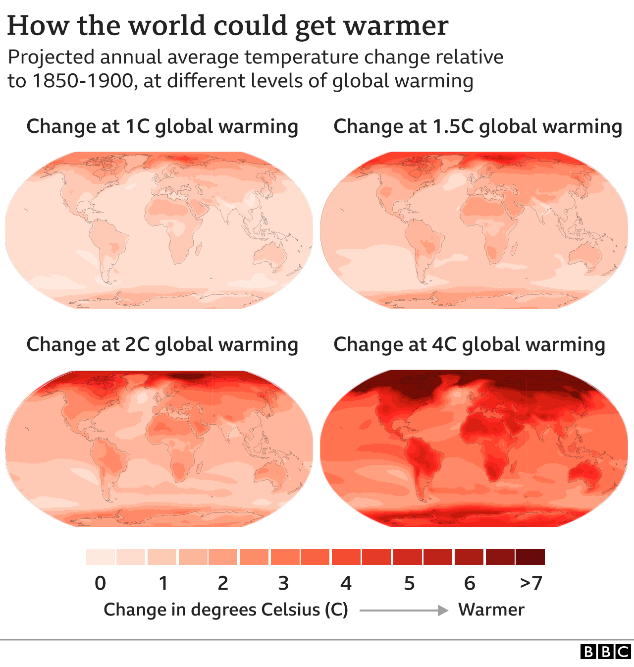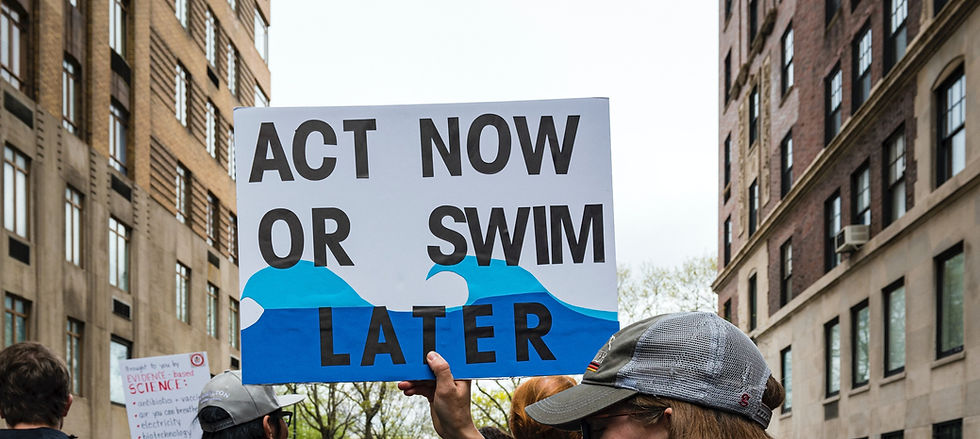- Aug 18, 2021
- 15 min read
Ipcc a6 Report: A Call for the “End of Inertia” on Climate Action
Co-written by Celine Damide and Steven Berkenfeld

State of the Climate Crisis
Last week, the Intergovernmental Panel on Climate Change (IPCC) released the Sixth Assessment Report (AR6), a major review of the most recent scientific observations and evidence on the climate crisis. This report has made an enormous impact on the environmental community and beyond. However, this report also needs to serve as an immediate call to action if we want to avert climate disaster.

The international scientific working group declared that the current direction of climate change is dire unless immediate and deep action is taken to reduce greenhouse gas emissions. Human-induced warming of the planet has had visible consequences, with the global surface temperature indicating 1.1°C higher than pre-industrial era and the rate of sea-level rise almost tripling compared to 1901-1971.
The effects of climate change are already heavily felt with increased frequency and extremity of climate events such as heat waves, droughts, wildfires, tropical storms, heavy precipitation, and flooding. This has led to the catastrophic events experienced in the past couple of months, including wildfires across California and Greece and floods in China and Germany. The severity of extreme weather events will only increase based on the path we are currently on. This graphic from BBC shows the increasing increments of Celsius and its global effect on temperature.
At the Climate Action Tipping Point
The IPCC outlines the real and significant impacts from continuing releasing greenhouse gases that are warming the planet. However, the current trajectory is not set in stone. There is still a narrow window to slash global emissions for a chance at staying below a 1.5°C or 2°C warming.
The report is a clear call for ending the inertia on climate action, and everyone needs to be involved. Yes, climate action has received considerable attention and made meaningful progress within the past year. It is just not nearly enough for the change required to cut the bulk of emissions on a global basis.
Currently, the U.S emits the highest tons of CO2 per capita globally and is the second-largest global emitter. It has cumulatively contributed the most emissions of any country in the world. Still, 60% of our electricity generation is from fossil fuels, and the entire country only has seven off-shore wind turbines in operation.

The environmental and energy state of the country is not a reflection of a lack of technology or available incentives. In the past few years, the renewable energy industry has seen some extraordinarily compelling incentives. Funding for clean technology will continue to grow with the Biden administration proposing the most generous incentives and financing for renewable energy seen on a federal level.
In addition, current practices and technologies are sufficient to reduce and remove greenhouse gases significantly. Using the best of these existing climate solutions, the world can achieve the necessary carbon reductions before reaching 1.5°C or 2°C warming. Energy efficiency measures, renewable energy, regenerative agriculture, food waste reduction, etc. – combined with carbon capture and nature-based solutions - effectively cut emissions and remove existing CO2 from the atmosphere. As the sustainability industry evolves, more emerging technologies will accelerate this process. However, waiting for the most innovative technologies isn’t required with the resources available today. We already have most of what we need.
Forging ahead
You can read the report and be tempted to give up. However, whether as an individual, company, or property owner, it is everyone's responsibility not to be complicit in the destruction of our planet and its ecosystems. If anything, this report should act as additional motivation for governments, companies, property owners, and individuals to mobilize on crucial sustainability projects that have been in the works for too long.
Inertia has been one of the most formidable obstacles to the transformative solutions required for progressive climate action. Even with past IPCC reports warning of the direction of the climate crisis, the pace and extent of climate action are way behind where they need to be.
Transparency and disclosure have been key themes in the sustainability field in recent years. That’s not enough! It’s way past time to move on to action and accountability. We need to hold everyone accountable, especially the most economically and politically influential entities, to create targets, record milestones, and achieve their net-zero and, even better, carbon-negative goals.

The End of Inertia
The actions of the global community over the next few years will be crucial in determining if we can redirect the current trajectory of the climate crisis and avoid irreversible damage. “Unless there are immediate, rapid and large-scale reductions in greenhouse gas emissions, limiting warming to close to 1.5°C or even 2°C will be beyond reach”, the IPCC report concludes. This is a call for immediate action. We can no longer afford waiting and indecision. We can’t allow inertia to remain the dominant force driving our response to the climate crisis. The time to act is now!


-3.png)


